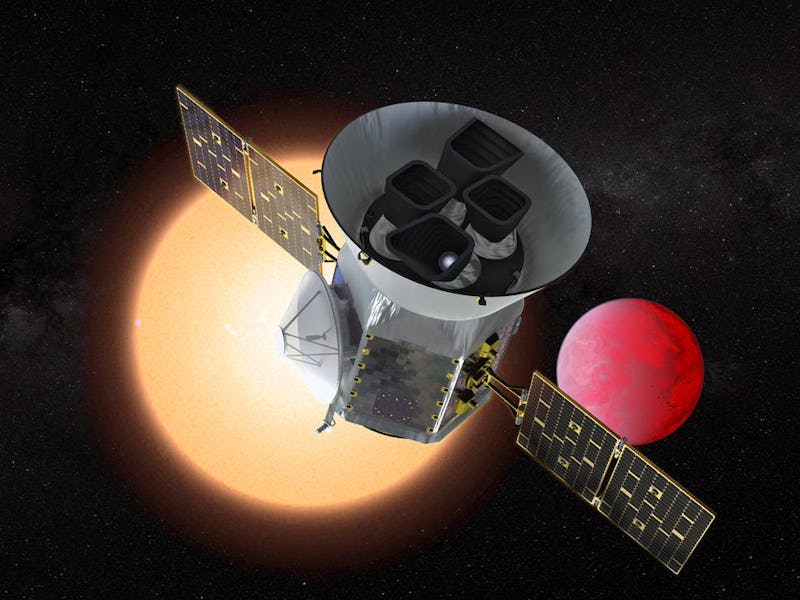Monday was a major bummer for aerospace enthusiasts, as the launch of NASA’s Transiting Exoplanet Survey Satellite (TESS) spacecraft was scrubbed at the last minute. While delays are par for the course in the world of rocket launches, this time, it wasn’t the weather’s fault. In fact, the whole thing is still a bit of a mystery.
The space agency’s new exoplanet hunter was set to liftoff from the Kennedy Space Center Monday evening on board a SpaceX Falcon 9 rocket.
“Weather is 80 percent favorable for today’s launch at 6:32 p.m. EDT, 22:32 UTC,” SpaceX tweeted earlier in the day. Hours later, the company changed its tune, adding that a new launch will be attempted Wednesday.
“Standing down today to conduct additional GNC analysis,” SpaceX posted. It’s unclear what the complications were regarding guidance, navigation, and control, but it sounds pretty serious.
NASA's TESS
TESS is a pretty big deal for NASA. As the agency’s older exoplanet investigator, Kepler, is running out of fuel, TESS is set to continue its legacy. Once it’s in orbit, TESS will study an area encompassing about 200,000 stars and could find up to 20,000 new exoplanets. For context, Kepler, which launched in 2009, has found about 2,700 exoplanets. No disrespect to Kepler — 200,000 is just a lofty goal.
“We’re on this scenic tour of the whole sky, and in some ways we have no idea what we will see,” Natalia Guerrero, deputy manager of TESS Objects of Interest, previously told Inverse. “It’s like we’re making a treasure map: Here are all these cool things. Now, go after them.”
When TESS finally does launch, it’ll liftoff on board a new Falcon 9 rocket. It’s worth noting that the rocket won’t be refurbished, as SpaceX has made this a major aspect of their business model. The aerospace company will, however, attempt to land the first stage of the rocket on a drone ship in the Atlantic Ocean.
We’ve been burned once this week, but it’s hard not to get excited all over again for Wednesday. Let’s hope the launch goes off this time without a hitch. Ad astra, exoplanet explorer!
